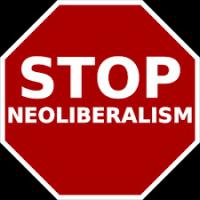
The Trump years were deeply undemocratic, but they did not mark an abandonment of a previously rich democratic politics
RIAD AZAR is a democratic socialist activist and political sociologist. His academic research looks at how social networks shape the ways people
think and feel about politics and problem solving.

The Trump years were deeply undemocratic, but they did not mark an abandonment of a previously rich democratic politics
The American Dream, that fantasy of growth that has long girded the ideology of entrepreneurship and a better future, is in crisis. Many haven’t felt the dream for decades, some never having experienced it at all. Robert Putnam, in his latest work, Our Kids, seeks to confront this stagnation in our economic dreams by interrogating the forces that have taken hold of communities across the United States.
 SASKIA SASSEN is the Robert S. Lynd Professor of Sociology at Columbia University (www.saskiasassen.com). She was interviewed for New Politics by editors Riad Azar and Saulo Colón about her new book, Expulsions: When Complexity Produces Elementary Brutalities (Harvard University Press, 2014).
SASKIA SASSEN is the Robert S. Lynd Professor of Sociology at Columbia University (www.saskiasassen.com). She was interviewed for New Politics by editors Riad Azar and Saulo Colón about her new book, Expulsions: When Complexity Produces Elementary Brutalities (Harvard University Press, 2014).
Inequality has become a defining issue of our time, with political commentators of all stripes discussing its causes, effects, and possible solutions. Thomas Piketty’s 2013 work, Capital in the Twenty-First Century, set off a chain reaction of books, journal articles, conferences, and debates focusing on questions of inequality. We intend to push this critique further.

Review of Michael Gould-Wartofsky, The Occupiers. New York: Oxford University Press, 2015.
Occupy was the largest political mobilization of my lifetime. The explosion of energy it produced gave the feeling of perpetuity, with thousands of volunteers supporting each other through donations of food and standing together in solidarity against the police. But as the encampments became rooted, many had to check their excitement with a growing sense of disillusionment. It was clear that the Occupy strategy, and how it played out in practice, was rife with weaknesses that were ultimately exploited by those who sought to destroy Occupy and the discourse that it created.
 Ask anyone what neoliberalism means and they’ll tell you it’s an economic system that corresponds to a particular economic philosophy. But any real-world economic system has a corresponding political system to promote and sustain it.
Ask anyone what neoliberalism means and they’ll tell you it’s an economic system that corresponds to a particular economic philosophy. But any real-world economic system has a corresponding political system to promote and sustain it.

Kali Akuno served as the coordinator of special projects and external funding for Jackson Mississippi’s late Mayor Chokwe Lumumba. He is co-founder and director of Cooperation Jackson as well as an organizer with the Malcolm X Grassroots Movement. He was interviewed by email by Riad Azar and Saulo Colón, both members of the New Politics editorial board.
 Regardless of one's views on whether or not the socialist left should support Bernie Sanders in his race for the White House, the momentum behind the self-described “democratic socialist” has been impressive. Beginning at 2% in April, his popularity grew to 14% in May and at last check was 32% in New Hampshire.
Regardless of one's views on whether or not the socialist left should support Bernie Sanders in his race for the White House, the momentum behind the self-described “democratic socialist” has been impressive. Beginning at 2% in April, his popularity grew to 14% in May and at last check was 32% in New Hampshire.
The idea of “voting with your pocketbook” is giving rise to a new global movement of ethical consumption. Industrial capitalism and its ills, it is thought, can be redeemed through personal consumer choices. “If only I bought the biodegradable bag of potato chips,” one may think to oneself watching a column of waste management vehicles pass on their way to the dump.
An extended interview with Joseph Daher, a member of the Revolutionary Left Current in Syria, living in Switzerland, will be published in the forthcoming Winter 2015 issue of New Politics. Here we just post the questions dealing with Kobanê and Turkey.